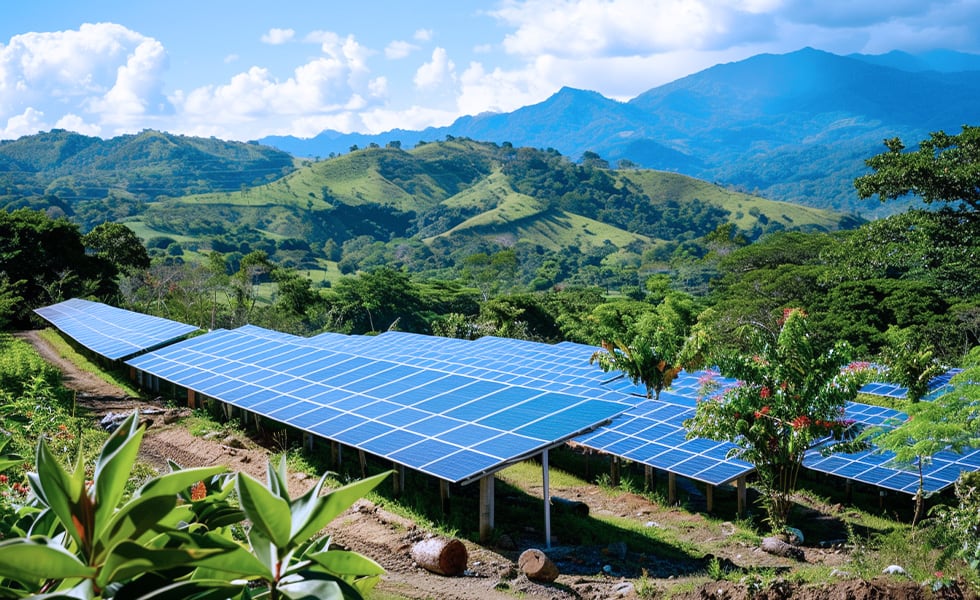The Costa Rican Electricity Institute (ICE) is promoting the construction of electricity generation projects utilizing solar, wind, and biomass resources, which are slated to come into operation within the next two years. These plants will collectively have a total capacity of 412 megawatts and an estimated investment of $539 million.
In total, the solar plants will provide 270 megawatts, while the wind plants will contribute 122 megawatts, and the biomass plants will supply 20 megawatts. They will be developed by ICE, public-private partnerships, and in accordance with Law 7200. The process to award the first private units resumed in March and is currently in execution.
“This aggressive plan full of new incorporations is possible, on one hand, because ICE was freed from the investment cap to which the Fiscal Rule subjected it. The new plants will strengthen the diversity of the matrix, reducing the need for thermal backup in summer and consolidating our world leadership,” said Marco Acuña, president of ICE Group.
Franz Tattenbach, Minister of Environment and Energy, highlighted the country’s commitment to boosting sustainable energy production.
“Costa Rica is betting for the first time on solar energy. With this measure, in a forward-looking manner, this Administration is responding to the present and future effects of El Niño, especially those that cause meteorological and hydrological droughts. Likewise, months ago, we published a Decree to encourage utilizing energy produced with biomass.”
ICE, in addition to its ownership of solar and wind power plants (including the repowering of Tejona in Tilarán), will bolster its energy portfolio in the upcoming years. This expansion includes the Borinquen I (2027) and II (2032) Geothermal Projects in Liberia, contributing to firm energy supply, as well as the Fourth Cliff Hydroelectric Project (2030) in Siquirres, enhancing regulatory capacity.
Over the next few months, the Institute plans to release new tenders targeting the private sector to procure additional solar and wind capacity, aiming to reach the maximum installed capacity permitted by law.
According to ICE, these efforts are part of the measures being taken to meet demand needs and address the effects of climate change.






